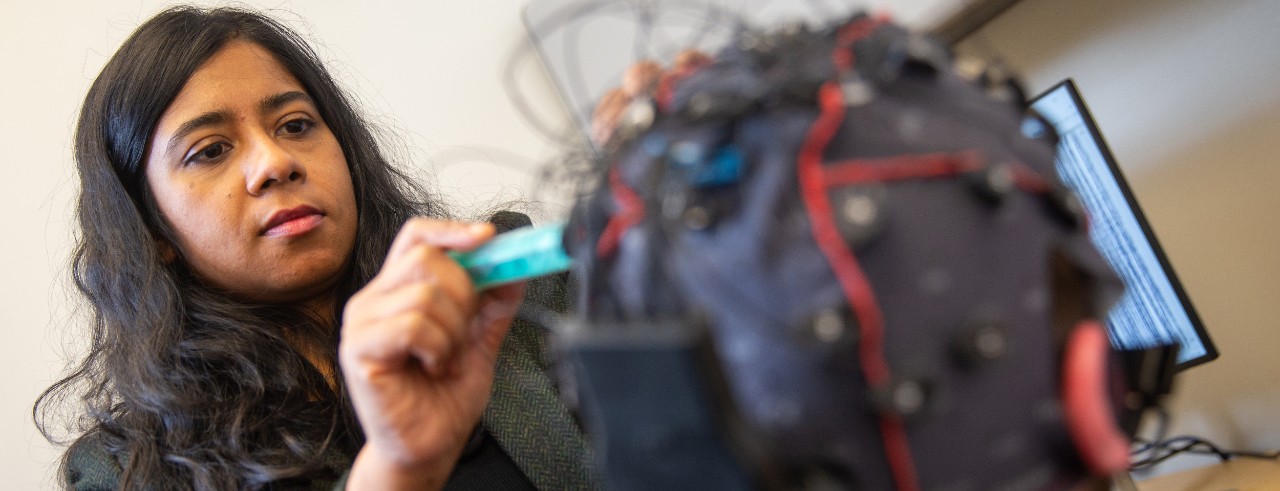
New brain stimulation trial aims to improve cognitive recovery from TBI
MSN highlights UC research
MSN highlighted a new University of Cincinnati trial led by Ishita Basu, PhD, testing noninvasive electrical brain stimulation as a cognitive rehabilitation method.
Basu’s research began focused on cognitive processes that are disrupted by mental health disorders, but she has expanded her scope to include how brain injuries such as stroke and traumatic brain injuries (TBI) affect similar processes.
“I wanted to expand to TBI, as there are a lot of unmet needs in terms of cognitive rehabilitation in this population,” Basu said. “It is crucial to develop treatments for early phases of TBI to better improve cognitive recovery and prevent long-term cognitive impairments.”
The trial will test a brain stimulation technique called anodal transcranial electrical stimulation (A-tES), a noninvasive treatment in which a low-intensity electric current is administered through electrodes placed on the scalp.
“We think that treating TBI earlier with A-tES during the acute and early chronic phases of brain injury will better improve cognitive recovery compared to a similar treatment used only in the chronic phase,” Basu said.
This work was supported by the Assistant Secretary of Defense for Health Affairs endorsed by the Department of Defense, in the amount of $810,000, through the Traumatic Brain Injury and Psychological Health Research Program under Award No. HT9425-24-1-0980. Opinions, interpretations, conclusions and recommendations are those of the author and are not necessarily endorsed by the Department of Defense.
Featured photo at top: Basu works on the headpiece with electrodes that will be used in the trial to deliver the electrical stimulation to the brain. Photo/Andrew Higley/UC Marketing + Brand.
Related Stories
New brain stimulation trial aims to improve cognitive recovery from TBI
December 13, 2024
MSN highlighted a new University of Cincinnati trial led by Ishita Basu testing noninvasive electrical brain stimulation as a cognitive rehabilitation method.
Trial finds new drug safe, effective to treat deadliest form of epilepsy
October 23, 2024
MSN highlighted research presented by the University of Cincinnati’s Brandon Foreman that found ganaxolone is a safe and effective treatment for refractory status epilepticus.
UC, Children's join $20 million statewide research effort
August 16, 2024
The Cincinnati Business Courier highlighted the University of Cincinnati and Cincinnati Children’s being part of a collaborative research initiative designed to identify the root causes of the ongoing epidemic of persistent emotional distress, suicide and drug overdose in the state of Ohio.
